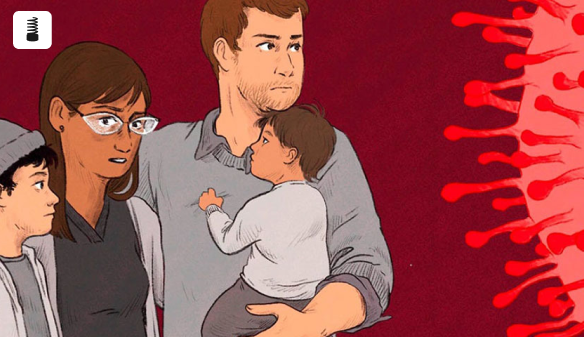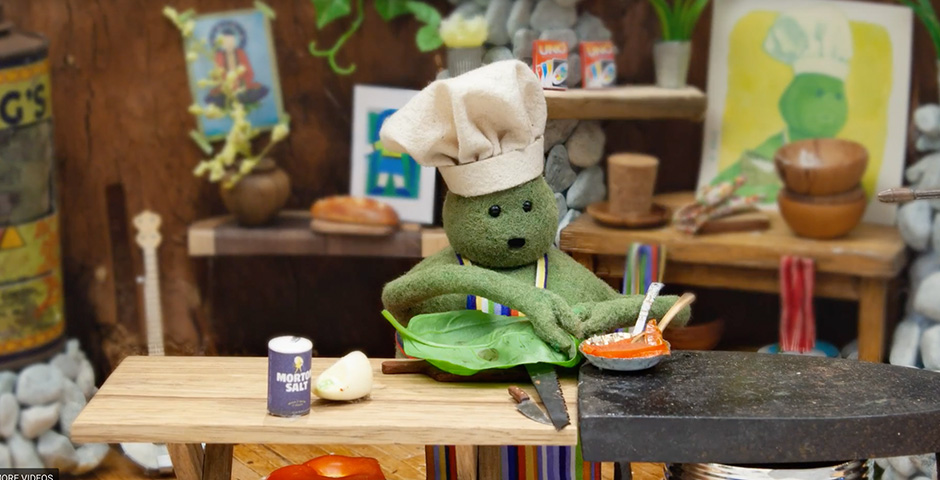When the pandemic hit in March 2020, fathers faced new challenges and fears while in lockdown. To help, Fatherly launched the Homebodies newsletter. Read on to find out how 2021 Webby Winner Some Spider and Fatherly, their digital media brand for dads, created a time capsule to help parents through a difficult time in Homebodies, and what they are doing now.
Publishing an issue every weekday between March and May 2020, Some Spider and Fatherly, their digital media brand for dads, found that parents were in desperate need of access to medical perspectives and strategies to cope during the pandemic. The Homebodies newsletter series connected readers with up-to-date news, space to reflect on the gravity of events, and glimmers of hope throughout. Some Spider and Fatherly: Homebodies won the 2021 Webby Award for Email Newsletters in Websites and Mobile Sites.
We spoke to Tyghe Trimble, Editor in Chief of Fatherly about how their team curated these resources for parents, what this special project meant to them, and what called them to use newsletters as the format.
To honor the resurgence and diversity of the newsletter format, we have introduced new Email Newsletter categories, including Independent Publishers, Art, Design & Culture, Business, News & Technology, and more. You can enter in these categories before the Extended Entry Deadline on Friday, February 11th, 2022!
The newsletter is a format as old as the internet – what about newsletters spoke to you? What needs does this format meet that other forms of digital content cannot?
Newsletters have made a comeback in recent years — and with good reason. As a format, a newsletter is direct, packed with information, and a place where the author is in direct conversation with their audience. As a publisher, to be able to skip the headaches of algorithmic distribution — through getting the just-right keywords for search, or being at the mercy of social engagement metrics — is a relief. From the reader’s perspective, you get what you sign up for, nothing less, nothing more. During those early, frightening days of the pandemic, we promised to be there for readers to help try to make sense of the pandemic. When they signed up for our email, they knew it would come every damn day rather than on Facebook or the wild west of Google. It’s an exciting time, and BDG is heavily investing in newsletters across our entire portfolio of brands.
You started the Homebodies series on March 17th, 2020, during stay-at-home orders in New York City. How did you choose what themes and expert pieces of advice to include in your newsletter? Was this based on addressing the needs and feedback of readers?
At the beginning of the pandemic, we as a society found ourselves in an information black hole. What was happening and what was going to happen? To start to find answers, we went straight to those who had a highly educated guess. First, the epidemiologists — to help make sense of what we were seeing, what we might expect to see, and to bring historical corollaries to bear. Then, more experts, virologists, public health experts, and pediatricians. Our science journalism was extremely thorough and we are proud of it — we asked sources for other sources for other sources. The list spread and we showed our work with big block quotes from the experts and pointing out contradictory advice.
The beginning of the pandemic was also very personal. It upended our daily lives and our routines, and so we turned to time management experts to help us find order in chaos.
Finally, the pandemic was, from start until now, a huge psychological burden, one that we aimed to relieve with mental health experts, as well as stories from people we look up to — who are suffering too, but may be one step ahead of us in making sense of it all.
Nearly two years have passed since the first newsletter. How does where we are today compare with your thoughts about the future in March 2020?
The biggest difference that we see between March of 2020 and today in our audience is that of fatigue. There’s no longer a voracious want for knowledge and more knowledge. People don’t want in-depth physics explainers about how, say, a virus spreads in an airplane versus a crowded theater. They want help — with making basic decisions that pertain to the virus, with mental health issues, and with social issues arising in the new opening world. So we’re moving from going deep into the science to translating it into service — news you can use.
In a time where parents and children are still coping with the effects of the pandemic and how it has changed them, what lessons can we learn from the Homebodies newsletter?
I think that when it comes to great information and good journalism, every crisis is an opportunity. Days after the pandemic hit New York City, we launched Homebodies and filled it with expert advice directly from those who knew what to do, and to expect. So many other outlets focused on politics and politicians, the popularity of lockdowns and masks, and what mandates would do for leaders in the next election. We were laser-focused on delivering what we ourselves as parents needed during that time — science-led, practical guidance on what families needed to know to get through today. Homebodies reinforced that no matter what is happening in the world, there’s a constant appetite for constructive guidance, minus color commentary.
Homebodies won a Webby for Email Newsletters in our Websites category. What does your Webby win mean to you?
Just about every day while we were publishing Homebodies, I’d put on the cartoons for the kids and get on a 5pm call on my bed, to hear the real bad news. I would transcribe eye-opening pandemic insights as my wife and I juggled two jobs, two kids (a 2.5-year-old at home without a thing to do and an 8 year old attempting to homeschool), and our own personal stresses and anxieties (about my dad who just had heart surgery, my grandmother in a retirement home). So many others struggled more, worked with less than we had, and needed more information. That was motivating — to all of us who worked on the newsletter including Matt Berical, Sam Bromer, Tara Santora, Anne Meadows, and Andrew Burmon — and it helped us put pen to paper to get out the newsletter each day (some later than others, we will admit). The Webby win felt like a warm hug for all our hard work, an invitation to revisit a time when we struggled, per the Homebodies tagline, to “be our best when everything’s the worst.”









